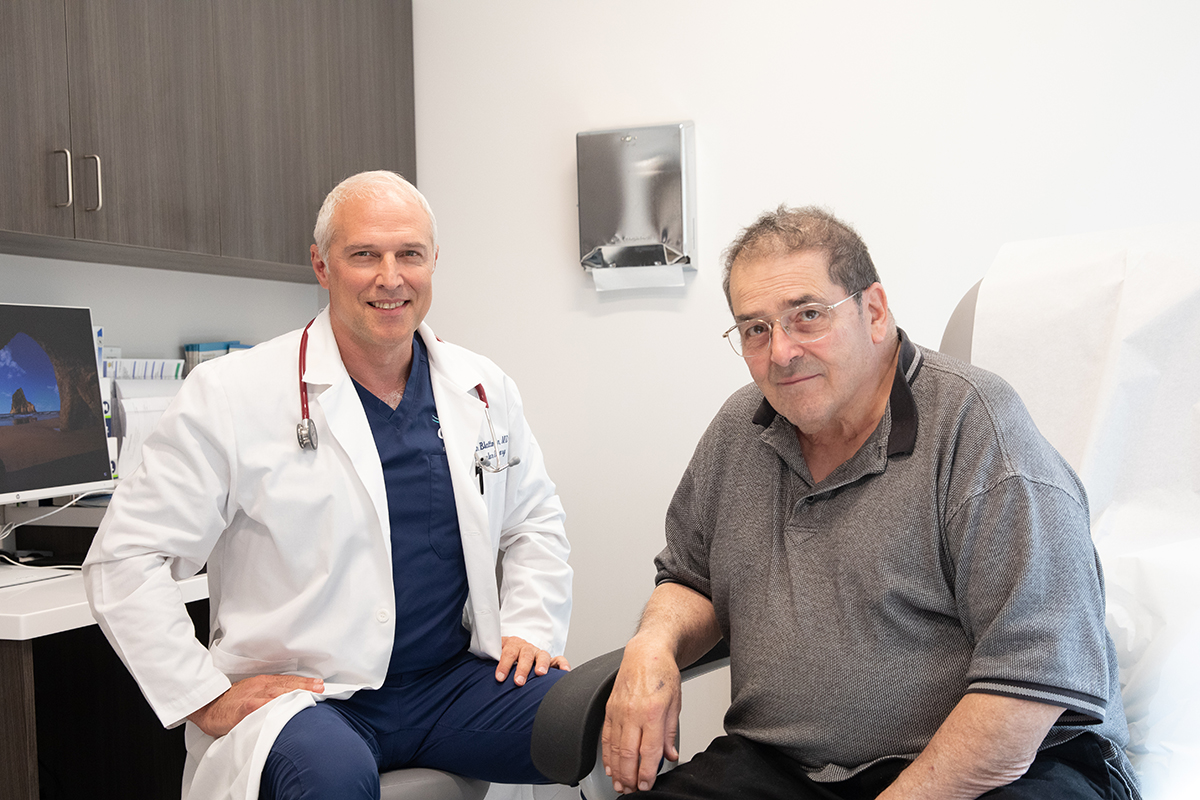
Working to enhance care for the elderly are Emergency Department leaders (from left) Christopher Davison, MD, medical director; Stephanie Morency, RN, assistant nurse manager; Amanda Jagodzinski, RN, nurse manager; Anne Marie McGrory, RN, executive director, Citical Care Services; and Tania Mariani, MD, associate medical director
Have you noticed that your elderly loved one has suddenly become confused and begun hallucinating? It may be a case of delirium.
With a focus on its most vulnerable patients, Greenwich Hospital has been certified by the American College of Emergency Physicians to provide specialized emergency care to patients ages 65 and older, including screening for delirium.
As a nationally certified Level III Geriatric Emergency Department (ED), the hospital will automatically screen all older patients for delirium, a serious disturbance in mental status resulting in confused thinking and reduced awareness of surroundings. Nurses and other providers have been trained to screen for delirium using the “Confusion Assessment Method” or CAM screening tool. The screening takes place during triage in the ED. Patients admitted to the hospital are assessed every 12 hours to keep a close eye on any changes.
“Greenwich Hospital is focused as an institution on bringing the highest level of care to our older citizens,” said Tania Mariani, MD, ED associate medical director. Twenty-nine percent of the hospital’s ED patients are older adults, ranging from 65 to over 100 years of age. Falls are the primary reason older adults seek emergency care, and a significant portion of the hospital’s trauma patients involve older adults.
Assuring older adults are comfortable during their ED stay may involve making sure family and caregivers are nearby, and providing a nutritious meal if patients have not eaten. “Skipping a meal or not drinking fluids can affect an individual’s mental status,” said Dr. Mariani. “We want to minimize treating people with medication if it is not indicated or when other interventions are appropriate.”
ED staff also checks for essentials such as eyeglasses, dentures, canes and hearing aids. “We may think older patients are hearing us because they are nodding their head,” said Dr. Mariani. “But they actually don’t understand what we are saying because they simply cannot hear us.”
Dr. Mariani recommends people seek immediate medical care if they notice a change in a loved one’s behavior, including confusion, inability to recognize family and friends, hallucinations or disorientation. Many factors can cause delirium, including urinary tract infections. “It’s common for older adults to come to the ED because they are confused or experiencing a sudden change in mental status,” she said. “We will perform a thorough workup to determine if they have an urinary tract infection, pneumonia or other infection that can cause delirium.”




